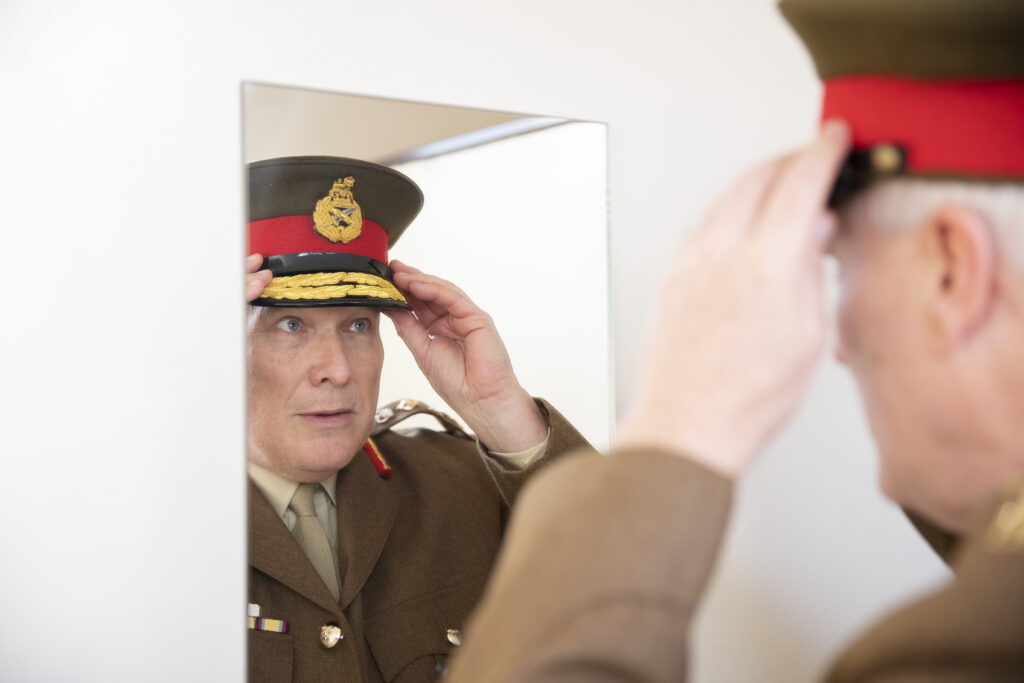Spread the love
In the high-stakes world of military operations, restful sleep isn’t just a luxury—it’s a strategic imperative. Soldiers must be prepared to perform at their peak at a moment’s notice, making quality sleep a critical component of their training and readiness. In this article, we’ll delve into the techniques and strategies employed by the military to ensure soldiers get the rest they need to maintain optimal performance or Mastering The Art Of Military Sleeping.

01. Creating a Sleep-Conducive Environment.
- Darkness and Silence: Military sleep environments prioritize darkness and silence to facilitate deep, uninterrupted rest. Blackout curtains and noise-canceling technologies are often utilized to achieve this.
- Comfortable Sleeping Surface: Soldiers often sleep in challenging environments, but efforts are made to provide them with comfortable sleeping surfaces such as cots or sleeping mats to enhance restfulness.
- Regulated Temperature: Maintaining a comfortable temperature is crucial for sleep quality. In extreme environments, climate control systems may be employed to regulate temperatures inside sleeping quarters.

yOU cAN aLSO lIKE tO rEAD tHIS bLOg:- 6 Tips For Better Sleep When You Travel
02. Establishing a Sleep Routine.
- Consistent Bedtimes: Soldiers adhere to consistent bedtimes whenever possible, even in dynamic operational environments. This helps regulate the body’s internal clock and improves sleep quality.
- Pre-Sleep Rituals: Engaging in calming pre-sleep rituals, such as reading or listening to soothing music, signals to the body that it’s time to wind down and prepare for rest.
- Limiting Stimulants: Caffeine and other stimulants are carefully managed, especially close to bedtime, to avoid interfering with the ability to fall asleep.
03. Adapting to Irregular Schedules.
- Napping Strategies: In situations where uninterrupted nighttime sleep isn’t feasible, strategic napping becomes essential. Military personnel are trained in power nap techniques to quickly recharge during downtime.
- Shift Work Management: Military operations often require soldiers to work irregular shifts. Techniques like gradually adjusting sleep schedules and strategic exposure to light help mitigate the negative effects of shift work on sleep quality.

04. Combatting Stress and Anxiety.
- Stress Management Techniques: High-stress environments can impede sleep quality. Military training includes stress management techniques such as mindfulness meditation and progressive muscle relaxation to promote relaxation and better sleep.
- Counseling and Support: Access to mental health resources is prioritized to help soldiers cope with the psychological challenges of their profession, which can significantly impact sleep.
05. Physical Fitness and Sleep.
- Regular Exercise: Physical fitness is closely linked to sleep quality. Soldiers engage in regular exercise to promote better sleep, with activities tailored to their operational requirements.
- Avoiding Intense Exercise Before Bed: While exercise is beneficial for sleep, intense physical activity close to bedtime can have the opposite effect. Soldiers are advised to avoid vigorous workouts in the hours leading up to sleep.

06. Utilizing Technology.
- Sleep Tracking Devices: Wearable technology allows soldiers to monitor their sleep patterns, providing valuable insights into sleep quality and identifying areas for improvement.
- Sleep Hygiene Apps: Military organizations develop and utilize specialized sleep hygiene apps to educate soldiers on healthy sleep habits and provide tools for optimizing sleep environments.

Conclusion:
In the military, the ability to obtain restful sleep is not just a personal wellness goal but a mission-critical necessity. By implementing a combination of environmental adjustments, routine establishment, stress management techniques, physical fitness, and technology integration, military organizations strive to ensure that soldiers are well-rested and ready to perform at their best, even in the most demanding of circumstances.

